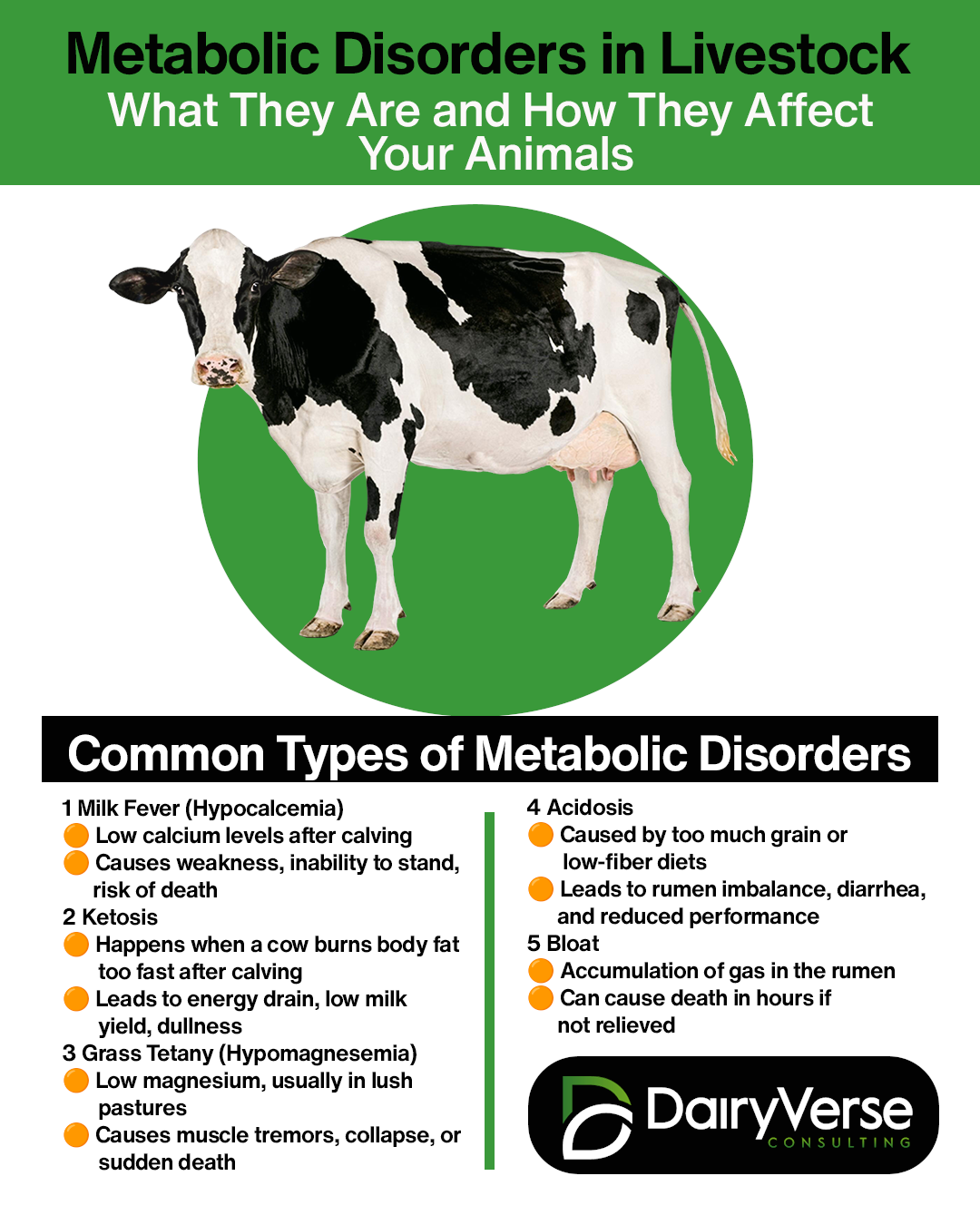Address
304 North Cardinal
St. Dorchester Center, MA 02124
Work Hours
Monday to Friday: 7AM - 7PM
Weekend: 10AM - 5PM
Address
304 North Cardinal
St. Dorchester Center, MA 02124
Work Hours
Monday to Friday: 7AM - 7PM
Weekend: 10AM - 5PM
Metabolic disorders are some of the most silent yet damaging issues in livestock. They don’t always start with fever or visible wounds. Instead, they begin inside the animal’s body, affecting how nutrients are absorbed, processed, and used for production, growth, and reproduction.

Metabolic disorders are some of the most silent yet damaging issues in livestock. They don’t always start with fever or visible wounds. Instead, they begin inside the animal’s body, affecting how nutrients are absorbed, processed, and used for production, growth, and reproduction.
Metabolic disorders in livestock occur when an animal’s body fails to maintain normal chemical balance, especially around:
This imbalance leads to major health issues—even in well-fed animals.
Even when you’re feeding well, these disorders can reduce productivity and silently drain profits:
They are common in high-performing animals — the very cows, goats, or sheep that you value most.
Metabolic disorders don’t knock—they sneak in.
And by the time you notice, you’re already losing money.
Healthy feeding, proper supplementation, and early care are your best defense